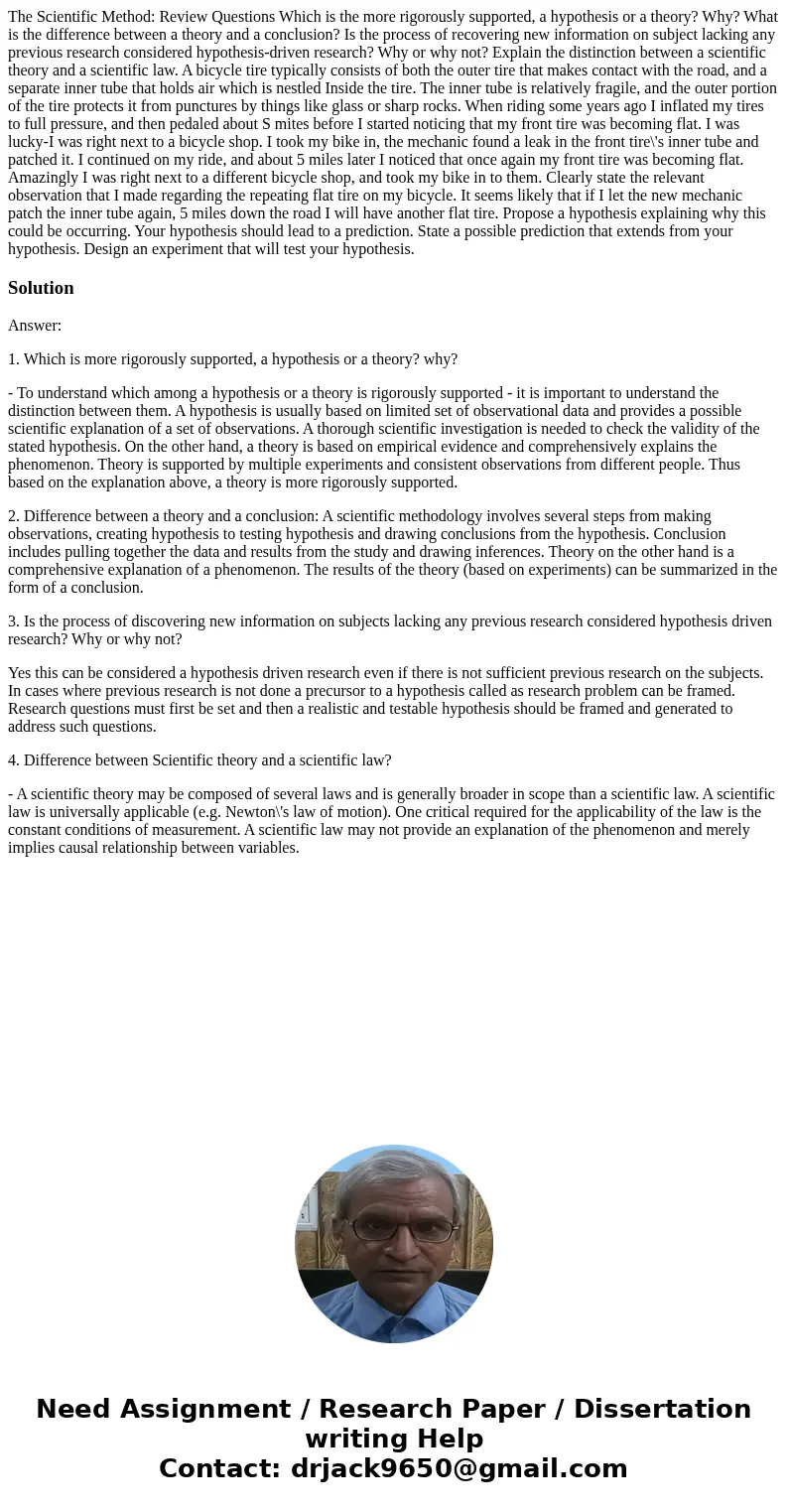The Scientific Method Review Questions Which is the more rig
Solution
Answer:
1. Which is more rigorously supported, a hypothesis or a theory? why?
- To understand which among a hypothesis or a theory is rigorously supported - it is important to understand the distinction between them. A hypothesis is usually based on limited set of observational data and provides a possible scientific explanation of a set of observations. A thorough scientific investigation is needed to check the validity of the stated hypothesis. On the other hand, a theory is based on empirical evidence and comprehensively explains the phenomenon. Theory is supported by multiple experiments and consistent observations from different people. Thus based on the explanation above, a theory is more rigorously supported.
2. Difference between a theory and a conclusion: A scientific methodology involves several steps from making observations, creating hypothesis to testing hypothesis and drawing conclusions from the hypothesis. Conclusion includes pulling together the data and results from the study and drawing inferences. Theory on the other hand is a comprehensive explanation of a phenomenon. The results of the theory (based on experiments) can be summarized in the form of a conclusion.
3. Is the process of discovering new information on subjects lacking any previous research considered hypothesis driven research? Why or why not?
Yes this can be considered a hypothesis driven research even if there is not sufficient previous research on the subjects. In cases where previous research is not done a precursor to a hypothesis called as research problem can be framed. Research questions must first be set and then a realistic and testable hypothesis should be framed and generated to address such questions.
4. Difference between Scientific theory and a scientific law?
- A scientific theory may be composed of several laws and is generally broader in scope than a scientific law. A scientific law is universally applicable (e.g. Newton\'s law of motion). One critical required for the applicability of the law is the constant conditions of measurement. A scientific law may not provide an explanation of the phenomenon and merely implies causal relationship between variables.

 Homework Sourse
Homework Sourse